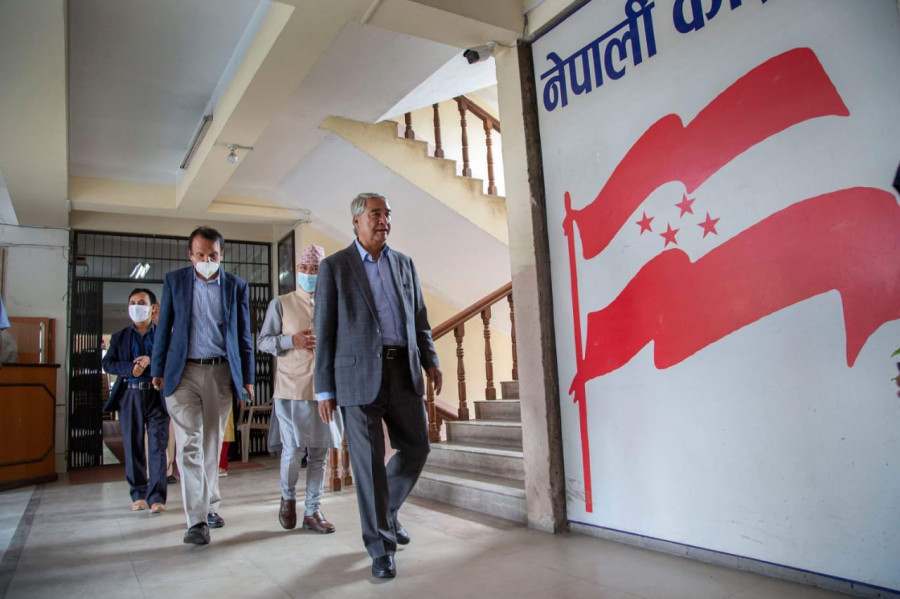Editorial
The difficulty of being Nepali Congress
The grand old party has come to such a pass that it is struggling to present itself as a redoubtable political force.
On Thursday, Nepali Congress president Sher Bahadur Deuba complained that there had been attempts at his character assassination within the party. Then he complained that the party had no money to spend on protests, and that very few people had turned up at the protests it organised. Deuba's complaints sound ridiculous, to say the least, coming from the supremo of the party that has a formidable history of putting up valiant fights for democracy. But that is how it is: The Nepali Congress is a fractured party, with too many talking heads doing precious little work even when recent political circumstances have presented it with an unlikely opportunity to rise like the phoenix.
When in the opposition, the Congress was more often than not a back-bencher, hardly making its presence felt even as it slyly staked its claims in bhag-banda of all kinds. Now, with the lower house dissolved, the grand old party has no idea where it stands vis-à-vis the debate on whether it should be reinstated or elections conducted. And that leaves it perennially in the waiting mode: If the House is reinstated, it wants to either lead the government or become the kingmaker; if the elections do happen and it garners a decent number of parliamentary seats—it isn't sure if it can dream of becoming the single-largest party—it still hopes to become the kingmaker.
Either way, the Congress has first to rescue itself out of the political oblivion it is in at the moment. It has been an all-round loser, being on the verge of losing its image as a democratic party for its inability to conduct a timely convention, and for its inability to champion democratic values and processes vociferously. The party that calls itself the champion of democracy has come to such a pass that it is struggling to call itself even a redoubtable political force.
What's more, the party's youth leaders are the biggest disappointment in the eyes of the people who genuinely want their trusted democratic party to take the lead and bring the democratic process back on track. In losing their best bet at wresting the leadership out of the hands of the old guard, the youth leaders have let down not only their younger cadre but also the common masses that want to see the party fulfil its duty of upholding democratic values. If it continues to remain reluctant to transform itself and make itself relevant as per changing times, people will stop having any nostalgia for it.
If timidity has a name, it cannot be Nepali Congress—for democracy's sake. As the party that fought on every occasion to establish democracy in Nepal, the Congress has an outstanding legacy. And with that, it has a great opportunity as well as a responsibility to clean up the mess in contemporary politics. It must settle the conflict within the party as well as consolidate democratic forces to help buttress the political culture that is in tatters due mostly to the feud in the ruling party.
As of now, for good or for bad, the presence of an alternative political force does not seem to be a strong possibility. And so, the Congress should take this opportunity to shake off its lethargy and rise to the occasion. It should be at the forefront of the struggle to rescue the democratic process. It has much to do in terms of buttressing its identity as a democratic party and a formidable political powerhouse, traits it has all but lost thanks to years of fence sitting. Remember, fence sitters have never made history.




 20.12°C Kathmandu
20.12°C Kathmandu













